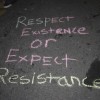This review originally appeared on www.reyes-chow.com.
A Patheos.com Book Club selection, 25 Books Every Christian Should Read has me conflicted. Don’t get me wrong, I’m not going to lose much sleep over this, but I do think that this book raises significant questions about the nature and perception of American Christianity. In a nutshell, if you are one who dreams of a day when the perception that “real” Christianity is only informed by European male theology and spirituality is shattered, you may need to hold your breath a little longer. While this collection certainly tells an important part of the Christian story, it does not tell the entire story.
Now let me be very clear in that I think this is a fine book. There is great value for all Christians in exploring the roots of our tradition, experiencing a wide variety of diversities and pushing oneself to explore thought outside of our comfort zones. I read many of these books as I went through seminary. Seeing some of the titles again sent cold shivers down my spine as I remembered painful nights when I had to read and read and read again because I just didn’t get it. At the same time, titles like, Institutes of the Christian Faith by John Calvin and Bonhoeffer’s The Cost of Discipleship, brought back fond memories of discovering some wonderful insights about my own Christian walk.
25 Books with its rich content and solid gathering of contributors, some of whom, I know personally and greatly admire left me wanting. As I skimmed the selections – the main 25 as well as the supplemental lists of some contemporary faith leaders – all I could think about was who was not included and I had an overwhelming sense of being drawn back into a very narrow version of the Christian faith. When I first received the book, I thought to myself, that’s cool, these are classics and they sit in a particular context. If there is a disclaimer about who is NOT included for whatever reason, that would be good enough for me. Again, these are great folks and Renovaré is a greatly respected organization and I am not just looking for ways to ding “the man” on race and gender issues.
No such luck, so let the dinging begin.
While there are disclaimers and explanations regarding the types of books chosen, in looking at the parameters for author selection and backgrounds of the editorial board, the only diversities that are lifted up are learning styles, literary genres and Christian traditions. There is no mention to the fact that the body of writings and people involved in the project are male and white. Again, I was not expecting a forced selection to satisfy some kind of nebulous quota, but for a book of this nature and import to NOT acknowledge some of the cultural realities that make it difficult to include more writings from women or those from Africa, Asian or Latin America is glaring. I am the first to admit that I do not have any suggestions for Global South theologians who would fit within the parameters of this book, but if the group of people with such stature who are called together to make the selections do not deem any writings deserving inclusion, this should be acknowledged.
Again, the initial list of 25 are fine and with the aforementioned disclaimer I would have been cool with the list. After all, they were not talking about contemporary writers. So imagine my excitement to see that at the end of the book there is a “Best Contemporary Authors” section. Redemption cometh for sure . . . bring on the brown folk! Doh . . . all nine of the contemporary authors are white and Anne Lamott is the lone women. I did not go through and check out the backgrounds of all the contributors or the editorial board, nor did I check to see under what publishing banner they all write, but when it comes to developing a list of contemporary authors that shape and form current Christian thoughts and there is only one woman and no people of color, there is a huge part of the story that is missing.
I do not think 25 books is trying to be the be all and end all of a Christian collection, so I have no reservation in recommending this book as one part of your library of the Christian faith. That said when you do buy this book, I hope that takes its place on the shelf as only part of your personal canon of readings, because while an important part of the story, it is only part of the story.
A few contributors were asked to list some of their formative books, here are some highlights:
- Brian McLaren suggests Theology and Identity: The Impact of Culture Upon Christian Thought in the Second Century and in Modern Africa by Kwame Bediako
- Lyle Smithgraybeal suggests The Grapes of Wrath by John Steinbeck
- David Neff suggests The Prophets by Abraham Joshua Heschel
- John Wilson suggests The Blue Flower by Penelope Fitzgerald
- Michael G. Maudlin suggests the The Lord of the Rings: 50th Anniversary Edition by J.R.R. Tolkien
- Psalms from Prison by Ben Chavis || Hard to find, but powerful words from this controversial civil rights icon.
- A People’s History of Christianity: The Other Side of the Story by Diana Butler Bass a great telling of the broad landscape of American Christianity.
- A Call to Conscience: The Landmark Speeches of Dr. Martin Luther King, Jr. edited by Clayborne Carson, Kris Shepard and Andrew Young || Simply awesome.
- Take This Bread: A Radical Conversion by Sara Miles || A moving memoir and story of conversion and faith.
- Acts of Faith: The Story of an American Muslim, in the Struggle for the Soul of a Generation by Eboo Patel || From the founder of Interfaith Youth Core, this is a new standard in looking at the possibilities that religious pluralism presents for the future.
- Prayers for the New Social Awakening: Inspired by the New Social Creed edited by Chrisitan Iosso and Elizabeth Hinson-Hasty || Wonderful prayers for worship of personal devotional time.
PS: And in case you were wondering, I have only read seven of the 25.
PPS: In full disclosure, all of the book links go through my Amazon Affilaite account, so I received a small percentage of each purchase. Such is the life of us consultant and reviewer types. You can find all of the 25 books, plus my suggestions in my 25 Books +6 List.














